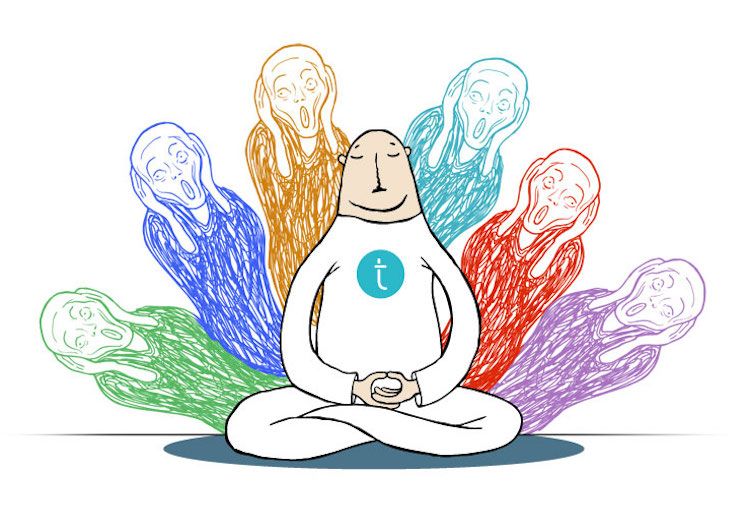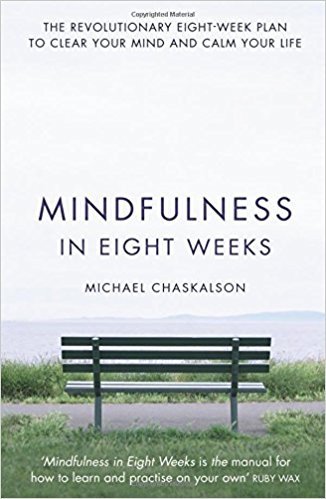What exactly do we mean by mindfulness?
"Mindfulness is the quality of awareness that comes from paying attention to yourself, others, and the world around you. the awareness that arises from paying attention on purpose, in the present moment, and non-judgmentally"

I. Background
Our attention wanders and much of the time it wanders off into the past or into the future. sometime there are elements of anxiety or regret involved in this. we may look to the future with a kind of anxious anticipation for what is to come, maintaining an uneasy alertness by constantly scanning the future for the challenges it may bring.
Encounters with people we must prepare for, tasks we need to tick off our lists - stuff coming our way. or we may find ourselves constantly reviewing the past, especially the things we regret, there might be even some unconscious sense, that by doing so, we'll be better prepared for the future. Maybe we've survived as a species and become the planet's top predator in part because we're good at doing these things.
But there is a price for this and that price may be the whole of our lives. if your attention is always in the future or always in the past, right now you're simply not here. right now, you're not fully alive. When you're mindful, your attention stays in the present. right here, right now.
II. Mindfulness is Non-judgmental
This doesn't mean that we don't make judgement, the non-judgmental attitude of mindfulness is neither condemnatory nor prejudicial. There are 2 dimensions to this:
1. Wisdom Dimension
"letting what is the case be the case"
We can put huge amounts of mental and emotional energy into refusing to allow things simply be as they are. "They shouldn't be like that", "It shouldn't be like this", "I ought to be somehow different". but things really only ever are as they actually are. However right, however wrong, however just or unjust, desirable or undesirable - they are as they are.
When we let what is the case be the case, whatever it is, then we can begin to choose how to respond to it. What would be the most appropriate next step for us and for the situation as a whole.
When we can't let what is the case be the case, then we're stuck. we're already rooted in a defensive posture of denial and we've closed down the possibilities for a more creative engagement with the situation.
2. Compassion Element
For much of the time, many of us find that we run a kind of inner critical commentary on our experience. sometimes that commentary can be directed at ourselves:"I'm not good enough" , "I don't measure up". The compassion element allows us to:
"Allow ourselves to be ourselves, allow others to be who they are"
We rest with a little bit more at ease with life as it actually is - with a bit more kindly acceptance towards ourselves and others. the quality of acceptance that emerges from mindfulness training isn't simple passivity, but enable you to be more appropriately assertive. it might sharpen your capacity for drawing ethical distinctions. all of this can be done with wisdom with kindness.
With mindfulness training you begin to develop a greater capacity to allow what is the case to be case and to respond skillfully and appropriately with a warm open-heartedness.
III. Benefits of Mindfulness

According to UK mental Health foundation (https://www.mentalhealth.org.uk/)
Mindfulness poses significant benefits on health, well-being, and quality of life in general:
Less likely to experience psychological distress, depression, and anxiety
Greater awareness, understanding, and acceptance of their emotion, and recover from bad moods quickly
Have less frequent negative thoughts and are more able to let them go when they arise
Have a higher, more stable self-esteem that is less dependent on external factors
Enjoy more satisfying relationships, are better at communicating, and are less troubled by relationship conflict, as well as less likely to think negatively of their partners as a result of conflict
Have the ability to cooperate and to see another persons perspective
Less likely to react defensively or aggressively when they feel threatened
Linked to higher success rate in reaching academic and personal goals
Improve peoples attention, as well as job performance, productivity, and satisfaction
Feel more in control of their behavior and able to override or change internal thought, feelings, and resist acting on impulse
Increase blood flow, reduce blood pressure, and protect people at risk of developing hypertension
Reduce addictive behavior, use of illegal drugs, prescribed medication, alcohol, and caffeine
IV. Neuroscience Research
We also know that mindfulness training has a significant impact on how the brain is shaped, wired, and activated. after just 8-weeks of mindfulness training, one might expect:
1. Increased brain grey-matter concentration in areas connected with sustained attention, emotional regulation, and perspective taking.
2. Increased cortical thickness (outer layer tissue)
3. Decreased amygdala activation
- The amygdala is a key component in the brain's threat detection system - when is it less active you feel more at ease with yourself and others.
4. Increased activity in the left prefrontal cortex and less activity in the right prefrontal cortex
- The ratio of left to right prefrontal activation is a good predictor of overall happiness and well-being - if the left prefrontal is more active then you're likely to experience higher levels of well-being.
5. Increased working-memory capacity
- Working memory is the system that actively holds information in the mind to do tasks such as reasoning and comprehension, and to make it available for further information processing.
- Measures of working-memory capacity are strongly related to success in the performance of complex cognitive tasks
- It is also a key component in emotion regulation and it is reduced by acute or chronic stress
V. Further Resources

http://umassmed.edu/content.aspx?id=41252
http://bangor.ac.uk/mindfulness
https://hbr.org/2014/03/mindfulness-in-the-age-of-complexity